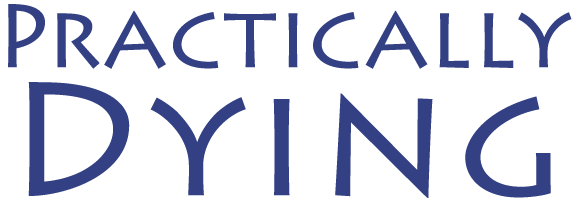Have you ever thought about the day after?
There are decisions to be made now. Clean up after yourself, so it’s easier on your loved ones later… The people you choose to represent you, after you die — are the most important pieces to the puzzle.
The most important things to do are:
- Appoint an agent who will act on your behalf financially.
- Appoint a second agent who can act in the event you can’t make medical decisions.
Although one person may function in both roles, they are separate jobs that require separate documentation.
Here’s a sampling of the kinds of things you should be putting together now, so you and your helpers (who will likely be in a state of upset anyway) can avoid frustration, wasted time and dead ends. Everything should be fleshed out with regard to contact information, account numbers, passwords and specific services.
professional providers
Who are your physicians, attorneys, accountants, stockbrokers, insurance agents, and personal and professional investment advisors?
benefits you receive
Your social security, veteran benefits, Medicare, and pensions. Remember that some of these may be benefits you haven’t used or thought about yet, like funeral costs for veterans.
information
Let your appointed agent know details about where you bank or which credit union, including co-signers and products (accounts & CDs) credit/debit cards or other payment methods you have, such as PayPal.
real property
Does someone trusted know where to find information, such as deeds and mortgages to houses, timeshares and rentals?
legal arrangements
Where are your Last Will & Testament, Trusts and any other financial documents that pertain to your after-death wishes?
documents
Are your important papers, such as marriage licenses, birth and death certificates, citizenship papers, tax returns, vehicle registrations, loan documents and big-ticket product warranties in an accessible location?
passwords
Don’t forget user names, passwords and customer service numbers for computers, websites, cell phones and voicemail services. Social media has spawned the need for a digital legacy. Deciding who can have access to your Facebook page and what they can do with it is more complicated than you could imagine.
We don’t realize how many ways we’re ‘plugged into’ systems and services in our daily lives.
Don’t assume that because you have co-signers or second card holders, that they have the power to manage or close an account. Don’t assume that because your wife loves you, she will be able to personally or legally make decisions about your health care. Make these decisions thoughtfully; and make sure your documentation is available to the right people when they need it.
Living Smart Guides is a terrific website that outlines all the details you’ll need help with — without making you crazy. Download the checklist. I have one caveat about websites, though… Don’t use standard forms to appoint your Agents — financial or medical, or to prepare your Living Will or Last Will.
These are important enough choices that require significant conversations with professionals in those fields. For example, I’m an expert in advance care planning, but I work with financial experts, medical clinicians and lawyers to whom I refer clients with those needs. This is one area where it’s true that ‘you get what you pay for.’
Clean up after yourself.
Imagine someone who doesn’t have any information or authority, trying to answer these questions and unearth the above-mentioned details without your help. It’s a common horror for people managing the affairs of someone who is incapacitated, or for someone who just died. Don’t let that happen to your loved ones.
If you found this article helpful, we’d love to hear from you in the comments section below. Feel free to contact Kim Mooney, of Practically Dying — or pass the information along to someone who might find it beneficial.
“Clean Up After Yourself ” image used with permission, from The Fairy Door Store. Click the image to check out adorable one-of-a-kind products from www.thefairydoorstore.com.au

